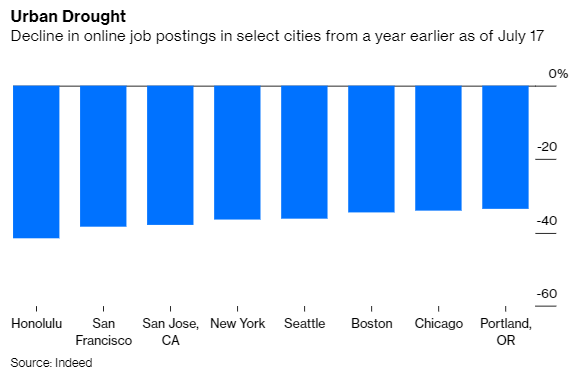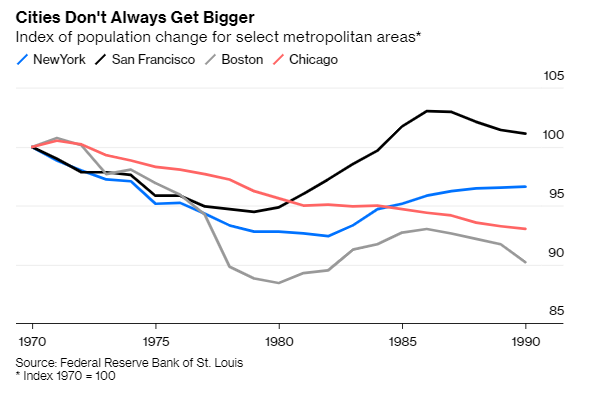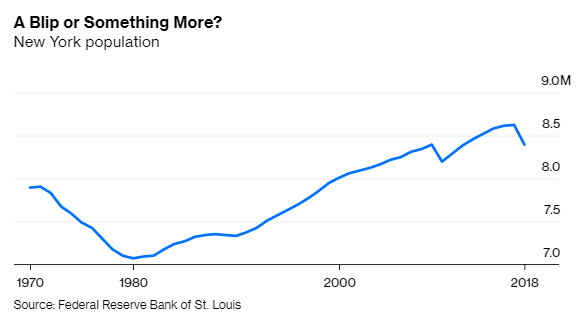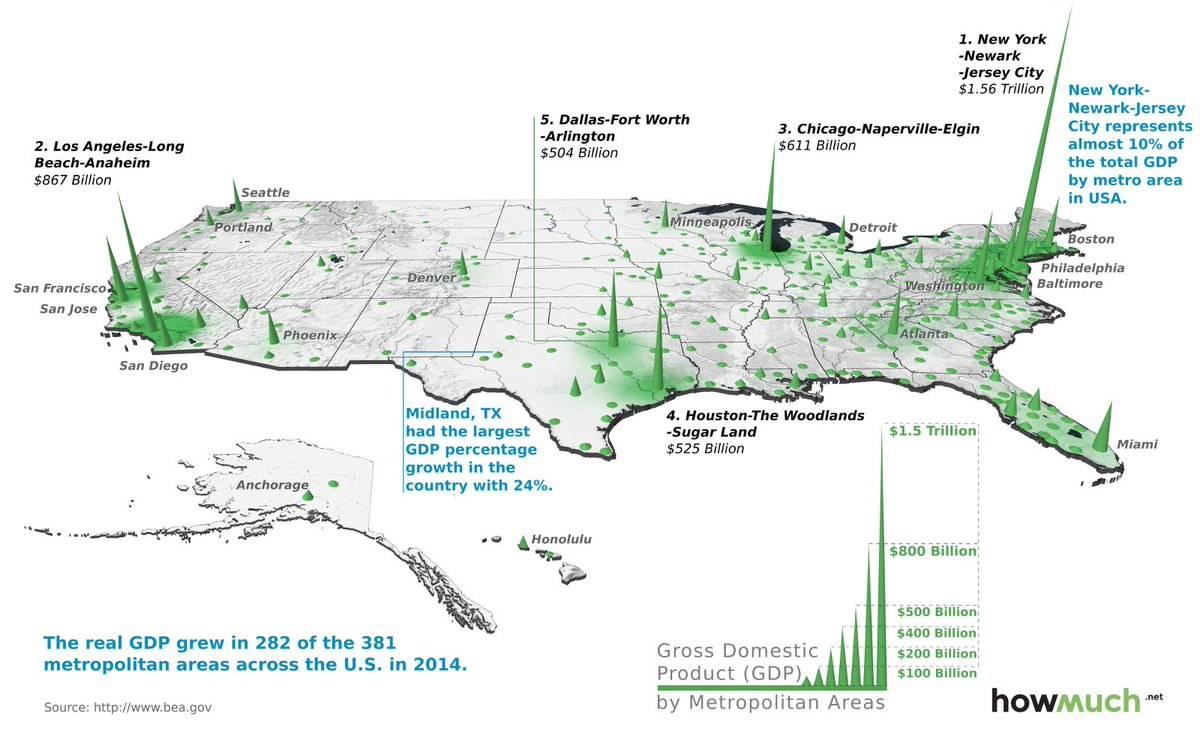1/Today& #39;s @bopinion post is about big cities, and why they might not bounce back triumphantly after COVID is gone. https://www.bloomberg.com/opinion/articles/2020-08-10/new-york-san-francisco-u-s-cities-will-struggle-after-covid-19">https://www.bloomberg.com/opinion/a...
2/COVID is certainly hitting big cities harder, employment-wise. https://twitter.com/JedKolko/status/1291057781844242433">https://twitter.com/JedKolko/...
4/Rents tell a similar story. https://twitter.com/conorsen/status/1290274622739537921">https://twitter.com/conorsen/...
5/But many are sanguine about cities& #39; future. Disease used to be much more common than today, yet cities survived and thrived. https://www.bloomberg.com/news/features/2020-06-19/cities-will-survive-pandemics-and-protests?sref=R8NfLgwS">https://www.bloomberg.com/news/feat...
6/And so far it& #39;s mostly rich people leaving cities to escape the virus, not the masses. (This echoes a pattern seen in many epidemics throughout history.) https://www.curbed.com/2020/7/13/21319909/coronavirus-urban-exodus-cities-moving-suburbs">https://www.curbed.com/2020/7/13...
7/But there are reasons we should not get overconfident about the future of cities after the pandemic.
One reason is simply to look at history. Cities don& #39;t always grow.
One reason is simply to look at history. Cities don& #39;t always grow.
9/To think about the future of cities, we have to think about WHY cities exist in the first place.
There are three basic economic advantages of cities:
1. Production
2. Consumption
3. Public goods
There are three basic economic advantages of cities:
1. Production
2. Consumption
3. Public goods
10/Cities are enormously productive. They let suppliers, purchasers, producers, sellers, customers, employees, and financiers all live close to each other, creating deep markets and frequent, cheap interaction.
https://www.jstor.org/stable/23357235?seq=1">https://www.jstor.org/stable/23...
https://www.jstor.org/stable/23357235?seq=1">https://www.jstor.org/stable/23...
11/For years, people predicted that the internet, by enabling telework, would cause cities to decline. Instead, the opposite happened.
BUT, with the rise of remote management via Slack and Zoom, accelerated by COVID, we may have hit a tipping point.
BUT, with the rise of remote management via Slack and Zoom, accelerated by COVID, we may have hit a tipping point.
12/People also live in cities because it& #39;s important and fun to meet lots of people -- especially when you& #39;re young.
But with the rise of dating apps and social networks, it may now be almost as easy to find friends and romance in a medium-density suburb.
But with the rise of dating apps and social networks, it may now be almost as easy to find friends and romance in a medium-density suburb.
13/One disadvantage of cities is higher crime. For decades, violence fell in U.S. cities. But that trend could now be reversing, for reasons not yet well-understood. https://www.vox.com/2020/8/3/21334149/murders-crime-shootings-2020-coronavirus-pandemic">https://www.vox.com/2020/8/3/...
14/But the most powerful force pushing Americans out of big cities could be the fact that the existing residents of those cities don& #39;t want newcomers.
This is known as NIMBYism. https://www.bloomberg.com/opinion/articles/2019-06-14/america-s-battle-over-housing-is-just-getting-started?sref=R8NfLgwS">https://www.bloomberg.com/opinion/a...
This is known as NIMBYism. https://www.bloomberg.com/opinion/articles/2019-06-14/america-s-battle-over-housing-is-just-getting-started?sref=R8NfLgwS">https://www.bloomberg.com/opinion/a...
15/Long before COVID, politically powerful homeowners had been increasingly successful at choking off the U.S.& #39; urban revival. https://www.bloomberg.com/opinion/articles/2017-05-17/taking-on-nimbys-in-the-quest-for-growth?sref=R8NfLgwS">https://www.bloomberg.com/opinion/a...
16/Yes, a lot of NIMBYism is due to racism. But if you think that realization will enable an effective national pushback against NIMBYism, you might be over-optimistic given America& #39;s history. https://nymag.com/intelligencer/2020/07/trumps-racist-defense-of-nimbyism-may-aid-housing-justice.html">https://nymag.com/intellige...
17/So a perfect storm might be coming for America& #39;s superstar cities:
1. A preexisting trend of NIMBYism
2. A pandemic that scares rich people out
3. A critical mass tipping point for telework
4. Rising crime
5. Apps that enable city-like social life in the & #39;burbs
1. A preexisting trend of NIMBYism
2. A pandemic that scares rich people out
3. A critical mass tipping point for telework
4. Rising crime
5. Apps that enable city-like social life in the & #39;burbs
18/Big cities don& #39;t always grow. Sometimes they shrink. And we could be in for another period of shrinkage.
(end) https://www.bloomberg.com/opinion/articles/2020-08-10/new-york-san-francisco-u-s-cities-will-struggle-after-covid-19">https://www.bloomberg.com/opinion/a...
(end) https://www.bloomberg.com/opinion/articles/2020-08-10/new-york-san-francisco-u-s-cities-will-struggle-after-covid-19">https://www.bloomberg.com/opinion/a...

 Read on Twitter
Read on Twitter





